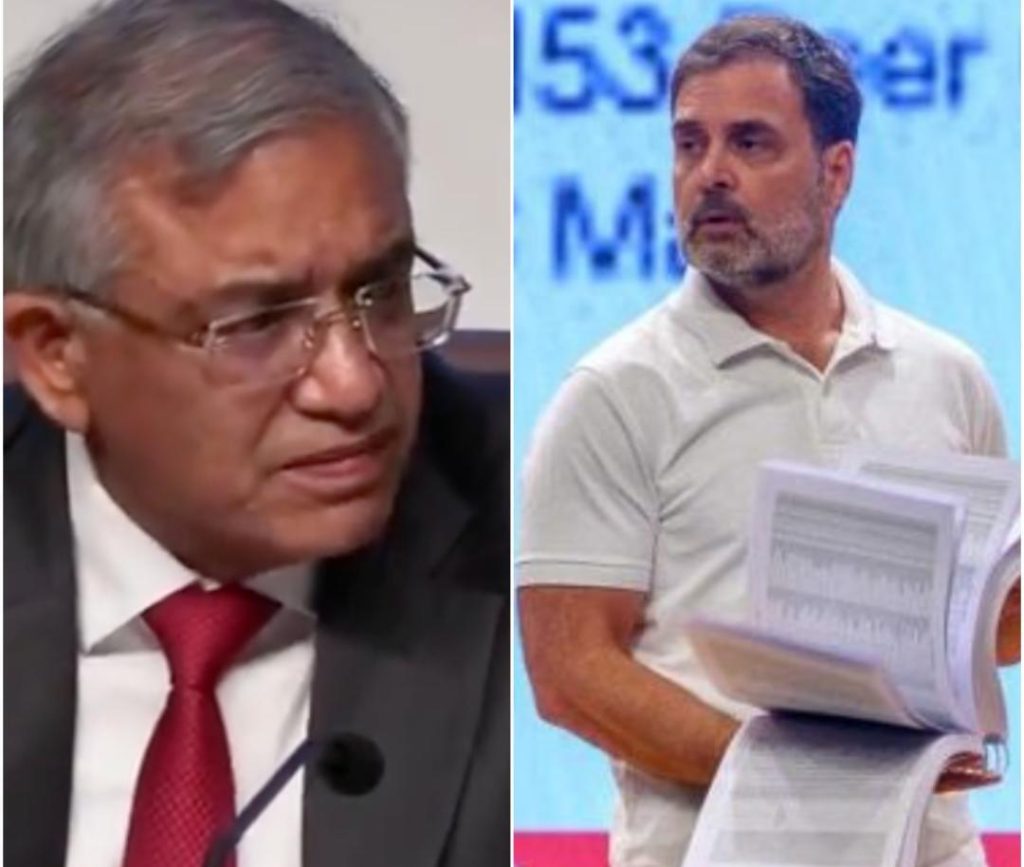
Vote Chori’ Phrase an Insult; Should We Share CCTV Footage of Mothers & Sisters Voting?: EC
The ongoing general elections in India have been marred by allegations of electoral malpractices, with several political parties and leaders leveling charges of rigging and fraud against each other. Amidst this backdrop, the phrase “vote chori” (vote theft) has gained prominence, with Congress leader Rahul Gandhi using it to claim that the elections are rigged. However, the Chief Election Commissioner (CEC), Gyanesh Kumar, has criticized the term, calling it an insult to the Constitution.
In a recent statement, Kumar slammed the use of the phrase, stating that it not only undermines the credibility of the electoral process but also demeans the democratic institution. He emphasized that the Election Commission is committed to ensuring free and fair elections, and such baseless allegations only serve to undermine the trust of the people in the democratic process.
Kumar’s remarks come at a time when there are growing demands for the Election Commission to release surveillance footage from polling booths, which are equipped with CCTV cameras. While some have called for the release of the footage to prove or disprove allegations of electoral malpractices, Kumar has expressed concerns over voter privacy and security.
In a recent interview, Kumar asked a pertinent question, “Should the Election Commission share the CCTV videos of any voter, including their mothers, daughters-in-law?” He emphasized that the Commission is committed to protecting the privacy and security of voters, and releasing such footage could compromise their safety and dignity.
Kumar’s concerns are well-founded. The use of CCTV cameras at polling booths is intended to ensure transparency and accountability in the electoral process. However, the release of such footage without proper protocol and safeguards could lead to unintended consequences, including the identification and intimidation of voters.
The Election Commission has implemented several measures to ensure the security and privacy of voters, including the use of biometric authentication and the deployment of Central Armed Police Forces (CAPFs) at polling booths. However, the Commission’s primary concern should be to protect the integrity of the electoral process, rather than indulging in a publicity stunt by releasing footage that could compromise voter privacy.
Moreover, the release of such footage could also be misused by political parties and individuals to settle personal scores or perpetuate harmful stereotypes. In a country where women’s safety and dignity are already under threat, the release of footage featuring mothers and sisters voting could be particularly problematic.
In conclusion, while the demand for transparency and accountability in the electoral process is understandable, the Election Commission must prioritize the privacy and security of voters. Rather than releasing CCTV footage, the Commission should focus on strengthening the electoral process, including the use of technology and the deployment of security personnel.
The “vote chori” phrase may have been used as a political gimmick to score brownie points, but it is ultimately an insult to the Constitution and the democratic institution. It is essential that political leaders and parties refrain from using such rhetoric and instead focus on promoting healthy and respectful dialogue during elections.
As the general elections draw to a close, it is crucial that the Election Commission and political parties prioritize the integrity and credibility of the electoral process. By doing so, we can ensure that the rights of voters are protected and that the democratic institution is strengthened.






